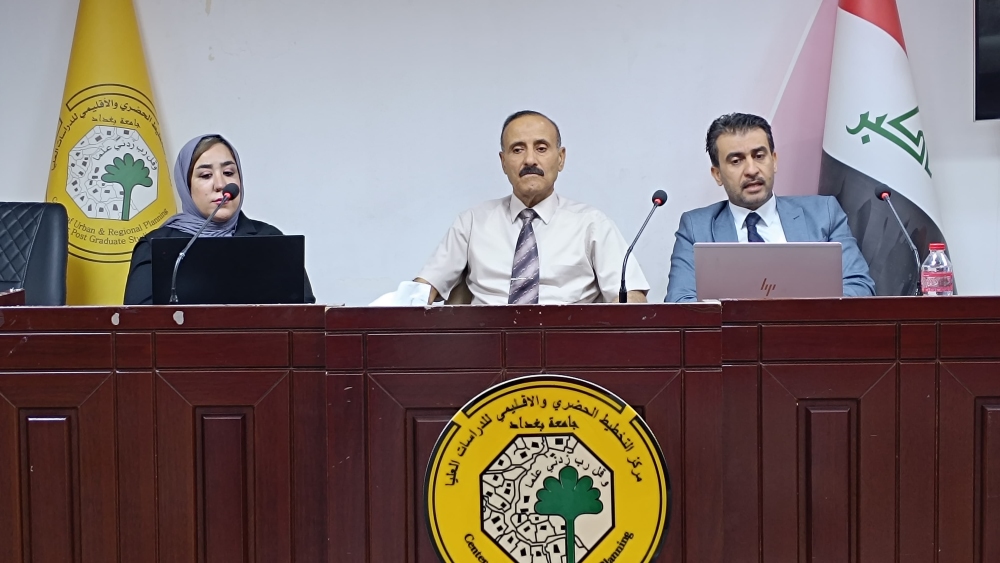The Center of Urban and Regional Planning for Postgraduate Studies at the University of Baghdad organized a training workshop entitled “Artificial Intelligence in City Management and Planning.” The workshop was delivered by Professor Ali Hussein Al-Janabi, a lecturer at the center, and attended by faculty, staff, and students, as well as beneficiaries from the Ministry of Planning, the Baghdad Municipality, and others.
The workshop aimed to clarify the concepts of planning and management, along with urban development. It also highlighted the concept of artificial intelligence and digital technology in city planning and management, as well as the tools used in digital technology. In his training workshop, Al-Janabi discussed urban management as a three-dimensional system consisting of planning, organization, and management. It is guided by a set of urban legislation to regulate functional performance and achieve sustainable development goals, with infrastructure development based on growth and change.
The two-day training workshop addressed urban management and smart cities, which are closely linked digitally through the use of information and communications technology to make cities more efficient, sustainable, and livable.
It’s worth noting that the training workshop addressed technologies and their main components commonly used in smart management, such as the Internet of Things, AOT applications, artificial intelligence, and big data analysis, in addition to GIS and cloud computing technologies, as well as blockchain technology, smart energy management technologies, and smart transportation technologies.
